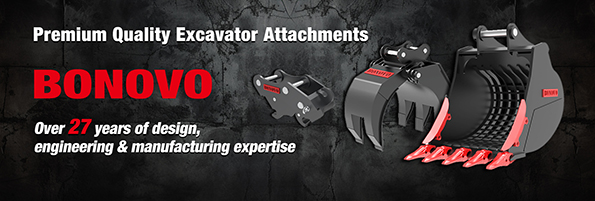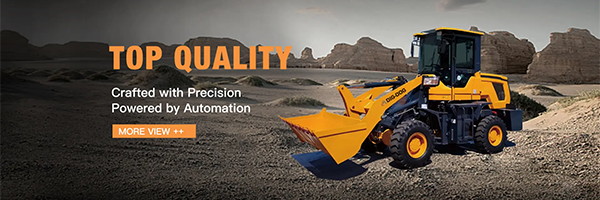1. Drain the water too early or not drain the cooling water
If the cooling water is drained too early, the engine body will shrink suddenly and crack when it is suddenly attacked by cold air at a high temperature. It should be operated at idle speed before turning off the engine, and the cooling water temperature should drop below 60℃ and the water should not be hot, then turn off the engine and drain the water. When draining the water, the remaining water in the engine body should be completely discharged to prevent the water from freezing and expanding, causing the engine body to rupture.
2. Use inferior fuel
The low temperature in winter makes the fluidity of diesel worse, the viscosity increases, and it is not easy to spray, resulting in poor atomization and deterioration of combustion, resulting in a decrease in the power and economic performance of the diesel engine. Therefore, light diesel with low freezing point and good ignition performance should be used in winter. Generally, the freezing point of the diesel engine should be 7-10℃ lower than the lowest temperature of the local season.
3. Start the excavator with open flame
The air filter cannot be removed. Dip cotton yarn in diesel and ignite it to make a fire starter and place it in the intake pipe for combustion start. In this way, during the starting process, the dusty air from the outside will be directly sucked into the cylinder without being filtered, causing abnormal wear of parts such as the piston and cylinder, and will also cause the diesel engine to work roughly and damage the machine.
4 Open flame baking oil pan
Open flame baking oil pan may cause the oil in the oil pan to deteriorate or even burn, reduce or completely lose its lubrication performance, and thus aggravate the wear of the machine. In winter, low-freezing point oil should be used. When starting, the oil temperature can be increased by using an external water bath.
5 Improper starting method
Before starting the excavator, it needs to be fully preheated. Before the engine is preheated, the gap between the parts is relatively large, and the oil is easy to sink to the bottom. After starting the vehicle, it must be preheated for a period of time, and the oil pump starts working at the same time to transport the oil to the parts that need lubrication. The oil can only circulate to the main parts after the engine is started. At this time, if you rush to rev the oil and turn it, the temperature will rise rapidly, which will increase the wear of the parts. Similarly, when the hydraulic oil temperature is low, rapid operation will cause damage to the hydraulic device.
PS: Generally, the best preheating time in winter is 15-20 minutes.
6 Low-temperature load operation
After the diesel engine starts and catches fire, some drivers can't wait to put it into load operation immediately. The diesel engine that has just caught fire will cause serious wear of the machine due to the low temperature of the engine body and the high viscosity of the engine oil. In addition, the plunger spring, valve spring and injector spring are also easy to break due to "cold brittleness". Therefore, after the diesel engine starts and catches fire in winter, it should be idled at low and medium speed for a few minutes, and then put into load operation when the cooling water temperature reaches 60℃.
7 Not paying attention to the body insulation
The low temperature in winter can easily cause the diesel engine to overcool when working. Therefore, insulation is the key to using diesel engines well in winter. In northern regions, diesel engines used in winter should be equipped with insulation sleeves and insulation curtains and other cold-proof equipment. In addition, the thermostat plays an important role in the heating of the diesel engine when it is working. Therefore, the thermostat should be checked in time to see if it is working normally, and the failed thermostat should be replaced in time.
8 Turn off the engine when it stops
Correct method: Run at idle speed for 5-10 minutes, especially for turbocharged diesel engines, because the turbine speed is very fast at this time, reaching more than 100,000 revolutions per minute, and immediately turn off the engine. The oil pump stops working, but the turbine is still running at high speed due to inertia and the temperature is still very high. The turbine shaft lacks oil lubrication and cooling. Frequent operation will cause premature damage to the turbine shaft. Therefore, it should be run at idle speed for a while and then turn off the engine after the temperature drops.
9 Failure to apply butter on time
If the excavator is not buttered on time, the consequences are very serious:
▊ Increase wear
Failure to add butter on time will make the butter seal unable to seal, and even cause fracture, increase the wear between friction parts (such as sleeves, pins, etc.), and reduce service life. The machine works as a whole, which will also increase the wear of other parts.
▊ Affecting operation accuracy
Affecting operation accuracy and reducing industry efficiency. For example, the gap between the excavator buckets increases, making it difficult to perform precise leveling, "sweeping" and other operations, and work that can be completed once needs several times.
▊ Wear and breakage of parts
If the grease of the excavator's walking device is not adjusted in time, it is easy for the crawler to disengage, or other parts to be severely worn and broken.
10 The excavator is parked randomly
The excavator is parked randomly, regardless of whether the terrain is flat or not. If the parking location has a large slope, it will cause insufficient oil pressure in the excavator, which will cause high temperature of the engine in the long run.
Choose BONOVO for high-quality, customizable brush cutters for skid steers with fast delivery. Contact us today to discover how our superior products can enhance your land management tasks!
for more info just visit our website at www.bonovogroup.com
contact # : +86 158 6218 2088
email : sales@bonovogroup.com
Excavator must be checked in winter
- BONOVO
- Counselor
- Posts: 645
- Joined: Oct 17th, '24, 02:50
- Location: China

